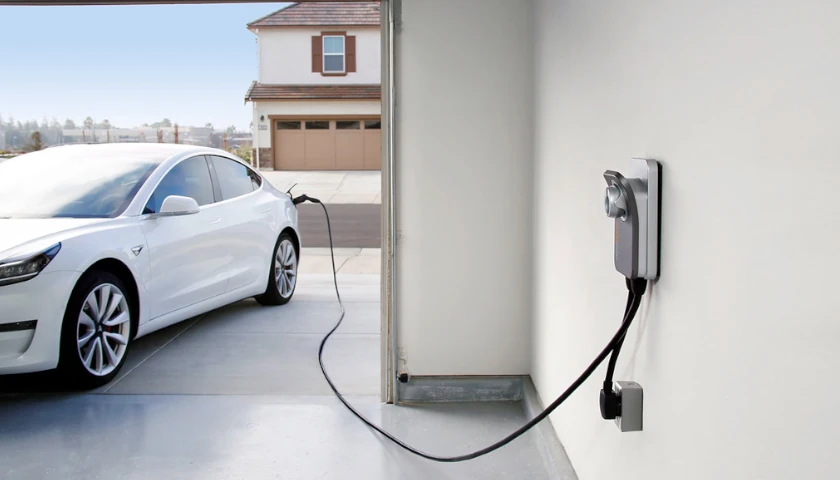by Morgan Sweeney
While Dominion Energy works to install a record-breaking solar project at Dulles International Airport and an offshore wind farm along Virginia’s coast, it’s also advancing the state’s green energy ecosystem in other ways.
The utility provider recently announced a new program to make owning an electric vehicle easier.
The program facilitates the easy installation of – and payment for – at-home level-2 electric vehicle charging units. If customers can’t afford to pay for a charger up front, they can pay in monthly installments as low as $40 per month over five years.
While Dominion Energy works to install a record-breaking solar project at Dulles International Airport and an offshore wind farm along Virginia’s coast, it’s also advancing the state’s green energy ecosystem in other ways.
The utility provider recently announced a new program to make owning an electric vehicle easier.
The program facilitates the easy installation of – and payment for – at-home level-2 electric vehicle charging units. If customers can’t afford to pay for a charger up front, they can pay in monthly installments as low as $40 per month over five years.
According to data from the Department of Housing and Urban Development, the area median income for a family of four in Loudoun County is $154,700, or $108,300 for a one-person household. This means a family of four making $123,800 or an individual making $86,700 could qualify for a free charger under the new program.
Loudoun County’s median household income earned it the ranking of richest county in America in a December study by U.S. News & World Report. Falls Church was second, Fairfax County was fifth and Arlington County placed tenth.
For other less affluent parts of Virginia, the other qualifier—200% of the federal poverty level—may come into play. This means one-person households with an income of $61,600 or less would qualify, as would two-person households making $70,400 or five-person households making $95,050 or less.
Interested Virginia residents must submit a program interest form, own a free-standing single-family home and be a residential customer of Dominion. Provided other basic conditions are met, like having an electrical panel that can “support required upgrades,” Dominion will send a third-party electrician to install the charger, “including the necessary breaker, wiring, and outlet,” and “will provide ongoing maintenance and support, including a five year warranty for your charger.”
According to data from the Department of Housing and Urban Development, the area median income for a family of four in Loudoun County is $154,700, or $108,300 for a one-person household. This means a family of four making $123,800 or an individual making $86,700 could qualify for a free charger under the new program.
Loudoun County’s median household income earned it the ranking of richest county in America in a December study by U.S. News & World Report. Falls Church was second, Fairfax County was fifth and Arlington County placed tenth.
For other less affluent parts of Virginia, the other qualifier—200% of the federal poverty level—may come into play. This means one-person households with an income of $61,600 or less would qualify, as would two-person households making $70,400 or five-person households making $95,050 or less.
Interested Virginia residents must submit a program interest form, own a free-standing single-family home and be a residential customer of Dominion. Provided other basic conditions are met, like having an electrical panel that can “support required upgrades,” Dominion will send a third-party electrician to install the charger, “including the necessary breaker, wiring, and outlet,” and “will provide ongoing maintenance and support, including a five year warranty for your charger.”
– – –
Morgan Sweeney is a staff writer covering Virginia and Maryland for The Center Square. Morgan was an active member of the journalism program as an undergraduate at Hillsdale College and previously freelanced for The Center Square.
Photo “EV Charger” by Automotive Rhythms. CC BY-NC-ND 2.0.





